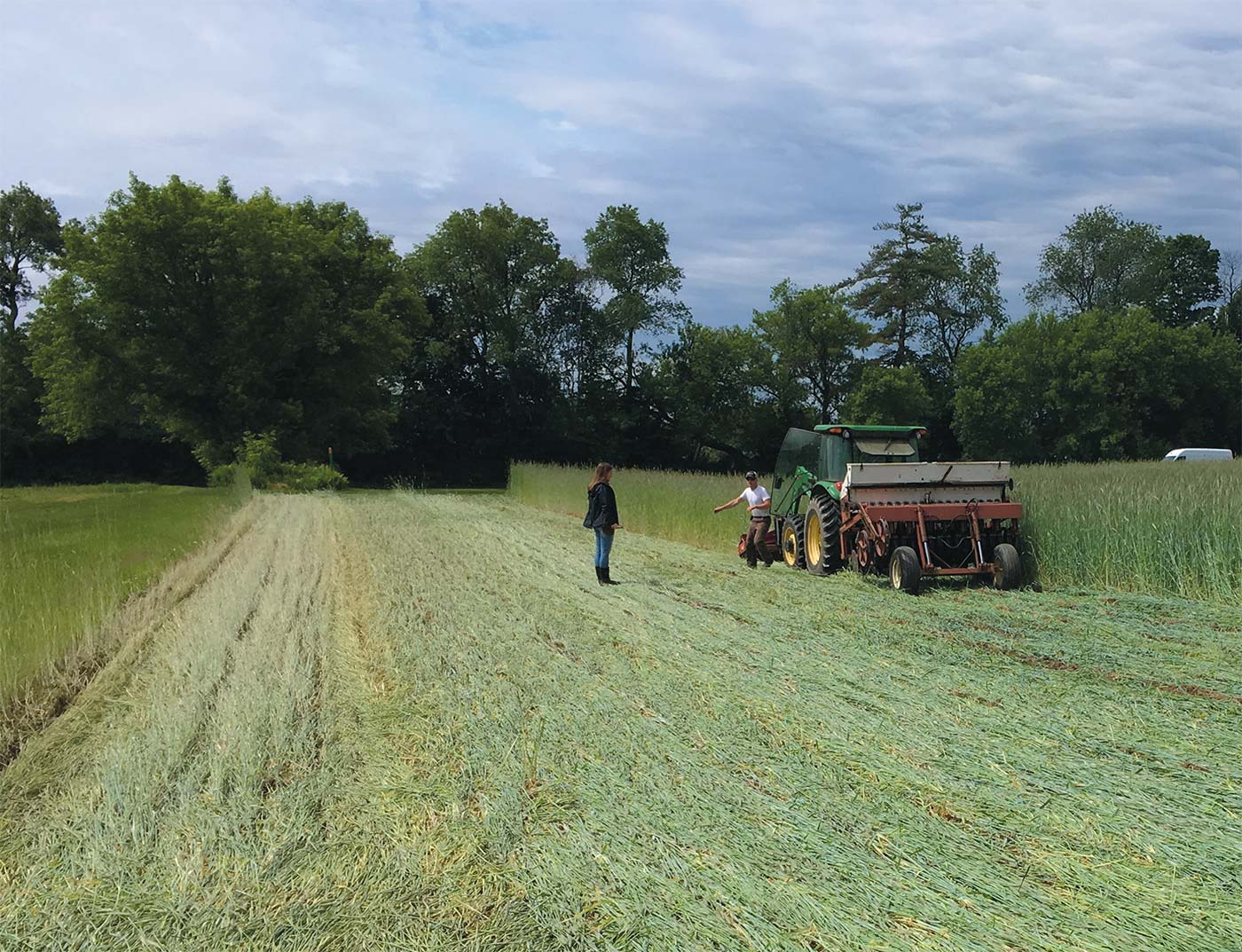Cedar Circle Farm and Education Center
“Our farm and research department work in collaboration to explore creative ways to reduce the impact of annual crop production on our natural resources, while viewing our work and research goals through the lens of an active productive farm.” –Stacey Cooper, Cedar Circle director of agriculture
It’s a warm, sunny summer day in the traditional territory of the Abenaki Nation and People, also known as present-day East Thetford, Vermont. At Cedar Circle Farm & Education Center, locals and tourists alike are milling about—sipping iced maple lattes and picnicking in the shade, admiring the fields of flowers and vegetables, engaging in meaningful conversations with neighbors, farm staff, and fellow friends.
Cedar Circle is a nonprofit, certified organic vegetable, berry, and flower farm located on 50 acres of conserved land along the Connecticut River. It’s a community hub with a farmstand, retail greenhouses, a farm kitchen, a coffee shop, a cut flower garden, education programs, and a unique CSA program.
One thing that makes Cedar Circle special is that while it’s a working organic farm, it is also dedicated to agricultural scientific research in the public interest and providing agricultural education and training to people of all ages.
“Our farm and research department work in collaboration to explore creative ways to reduce the impact of annual crop production on our natural resources, while viewing our work and research goals through the lens of an active productive farm,” says Stacey Cooper, Cedar Circle director of agriculture.
As a certified organic farm, the farmers at Cedar Circle hold themselves to a high standard. Through using organic practices, sourcing seed and plant stock thoughtfully, following fair labor standards, and building soil health through regenerative action, they aim to positively impact the land, community, and environment.
The research and development team focuses on exploring practices that go beyond organic (i.e. no-till). Its mission was born from a curiosity and a desire to find ways to mitigate the impacts of climate change that are becoming ever more apparent here on the farm—mainly, cycles of excessive heat and long droughts followed by heavy rains.
Fluctuation between extreme dry and wet periods result in the loss of topsoil, compaction, and decreased nutrient availability in agricultural fields. Plants suffer from heat stress, dehydration, and malnutrition, and are therefore more susceptible to damage by pests and disease. These challenges necessitate extra inputs— increased irrigation to help mitigate the prolonged drought and cover crops to keep soils protected during heavy rain events.
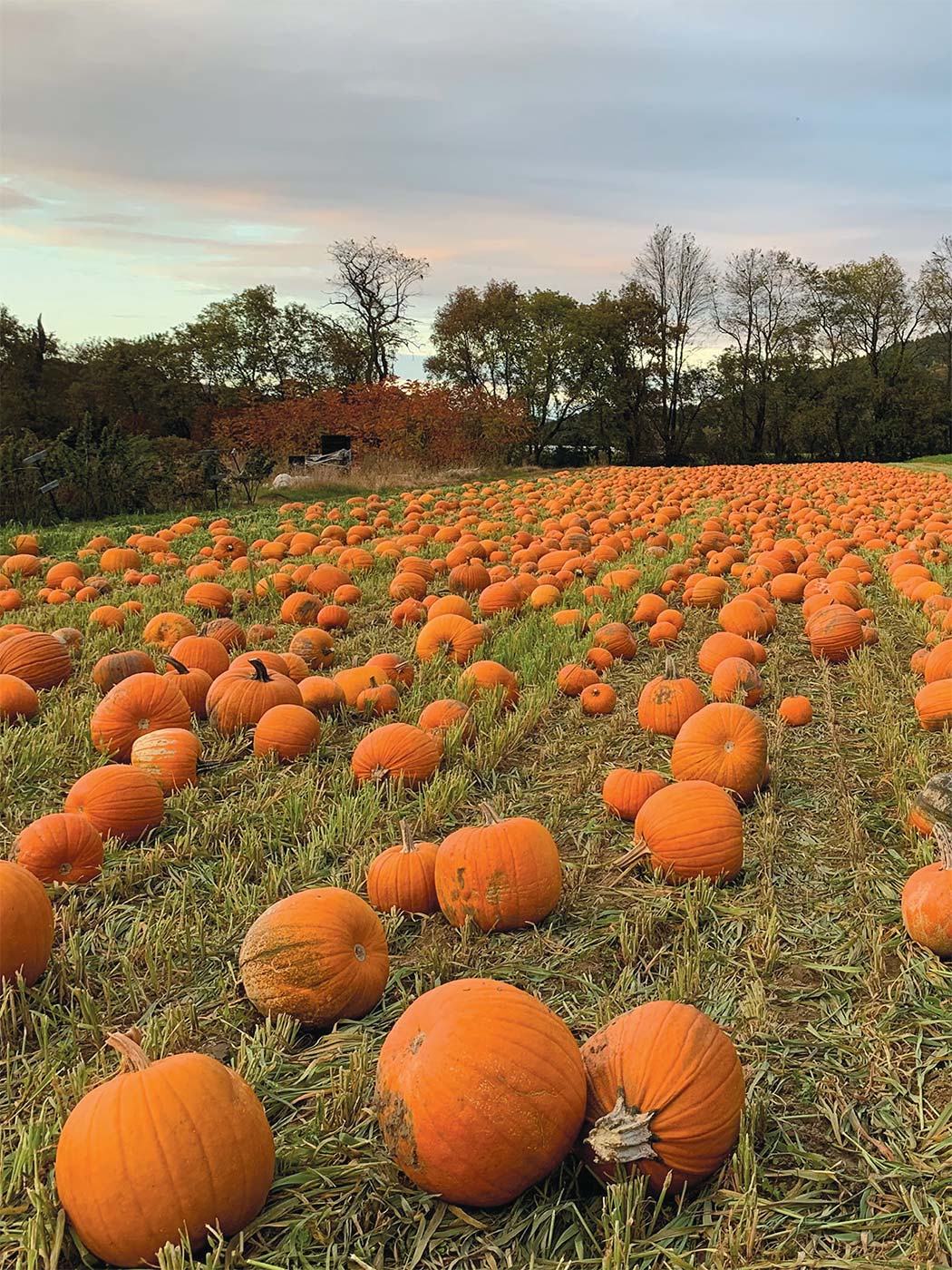
Pick-Your-Own pumpkins in October
In 2022, Cedar Circle was selected to join the first cohort of Vital Communities’ “Climate Farmer Stories” project, along with 12 other Upper Valley farmers and 7 Vermont and New Hampshire artists. A collection of portraits and interviews were produced, telling the story of actions each farm is taking to address climate change, and will be on display at about a dozen libraries and other locations in the Upper Valley from June through November. These are wonderful opportunities to learn how agriculture can be part of the climate change solution and what we can all do to increase community resilience.
Community is vital to Cedar Circle’s mission. Community Supported Agriculture (CSA) is one way they connect with the local community; CSA members make a financial investment in the farm during the leaner months when input costs are high, mainly in the winter and early spring while the farmstand is closed. In return, they get savings on fruit, vegetables, baked goods, meals, plants, and bouquets throughout the season, depending on the type of CSA they choose. There are a few unique options—for produce lovers, foodies, fresh cut flower enthusiasts, and customers looking for a more economical way to shop.
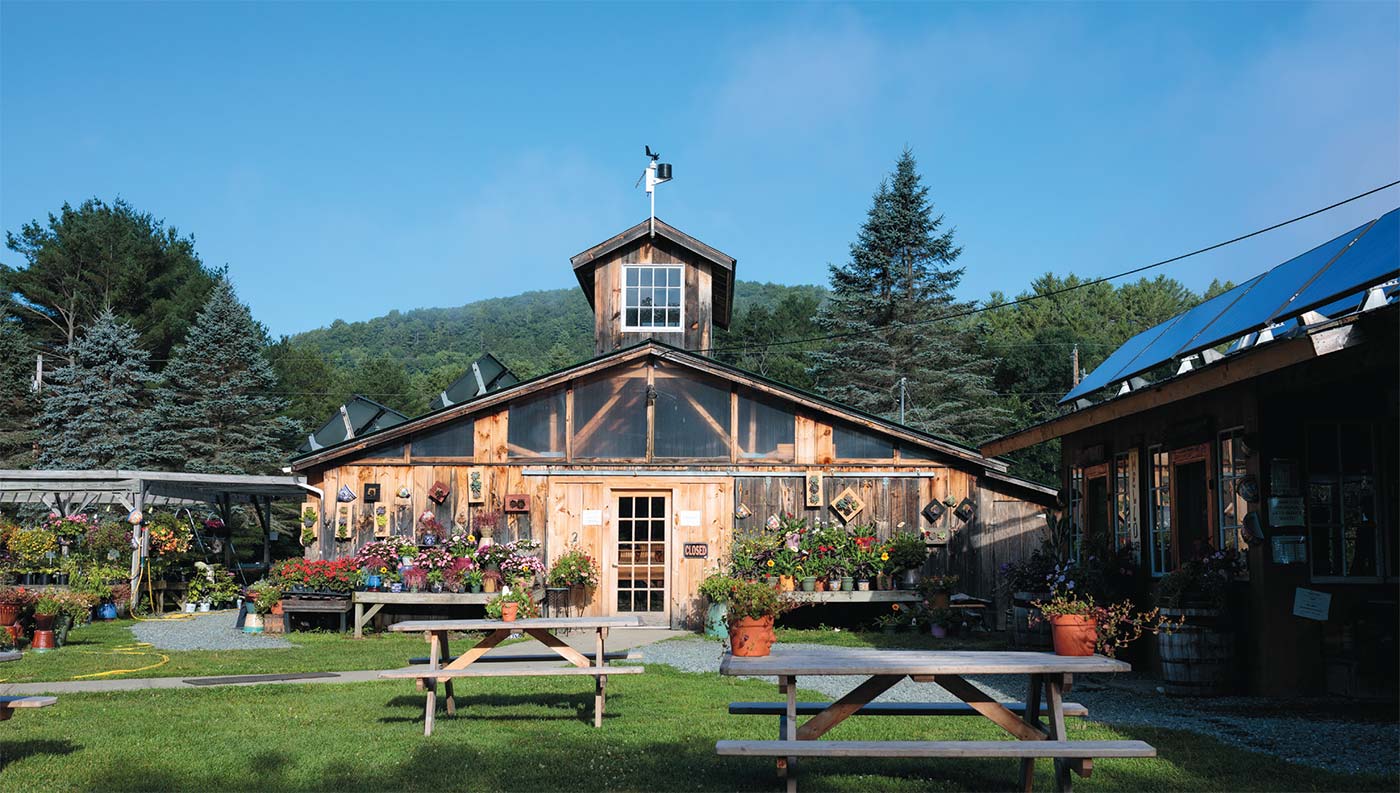
The farm stand and Hello Café at Cedar Circle
“Our education efforts help us to nurture and cultivate a community of informed gardeners, chefs, home cooks, and eaters about the need to reevaluate and address food production in our country and to restructure the food production systems that we all depend on.” –Eric Tadlock, Cedar Circle executive director
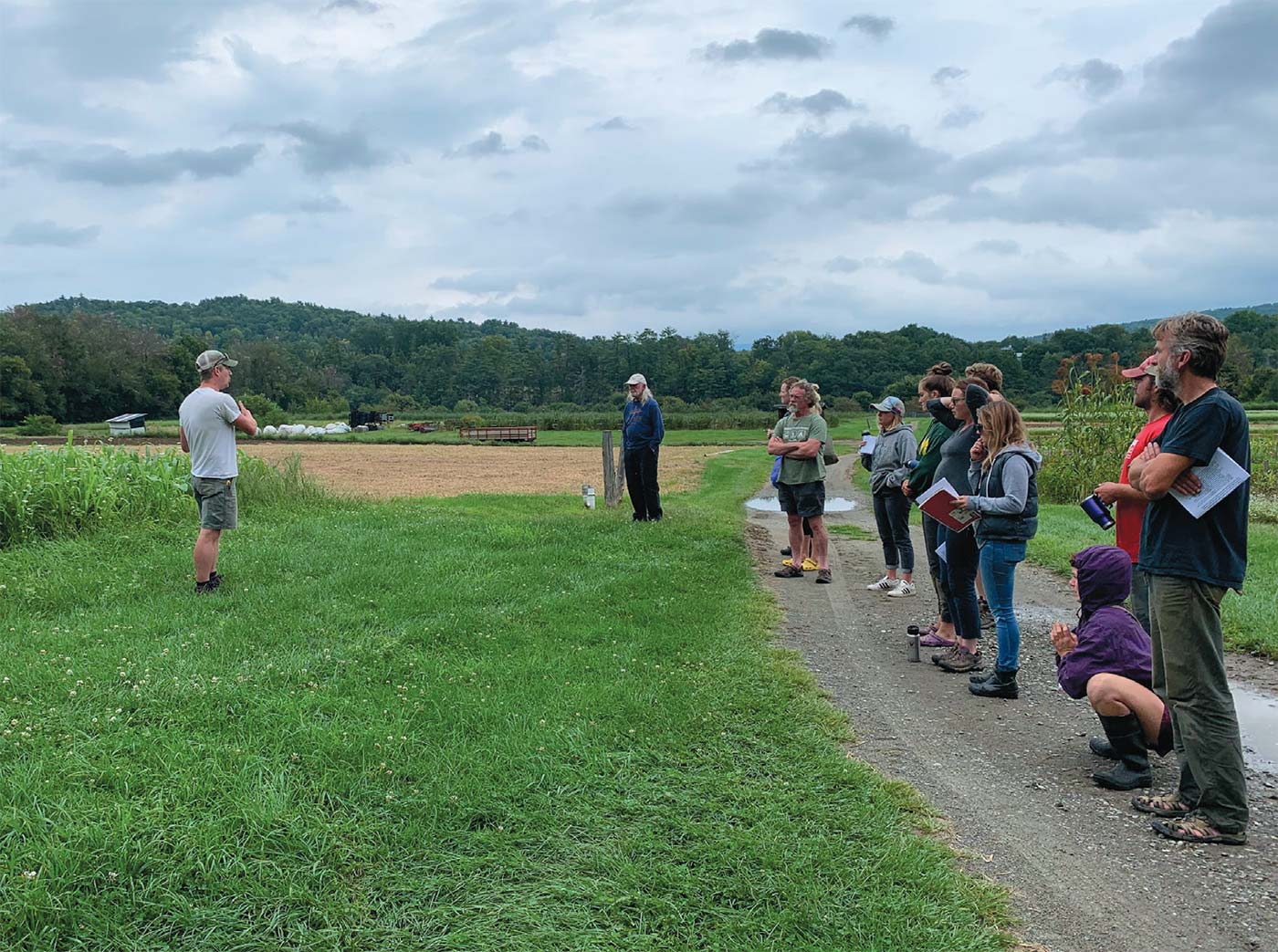
No-till farm tour with Nic Cook, Research and Soil Conservation Manager
“We are fortunate to live in a community that has a great awareness of the need for strong local food systems,” says Eric Tadlock, executive director. “Without the support of our dedicated customers, we would not be able to continue the work that we feel makes a contribution within our community and beyond.”
Since the organization was established more than two decades ago, Cedar Circle has strived to raise public awareness about the benefits of local organic agriculture, in addition to training new and aspiring farmers. Present-day educational programming expands on that mission and aims to help build connections between our food, ecosystems, and community. From cooking classes, farm tours, festivals, and on-farm demonstrations, the farm’s educational outreach has grown to include a summer day camp, a Little Farmers preschool program, school field trips, homeschool farm science, cooking for middle schoolers, and adult workshops.
“Our education efforts help us to nurture and cultivate a community of informed gardeners, chefs, home cooks, and eaters about the need to reevaluate and address food production in our country and to restructure the food production systems that we all depend on,” says Eric.
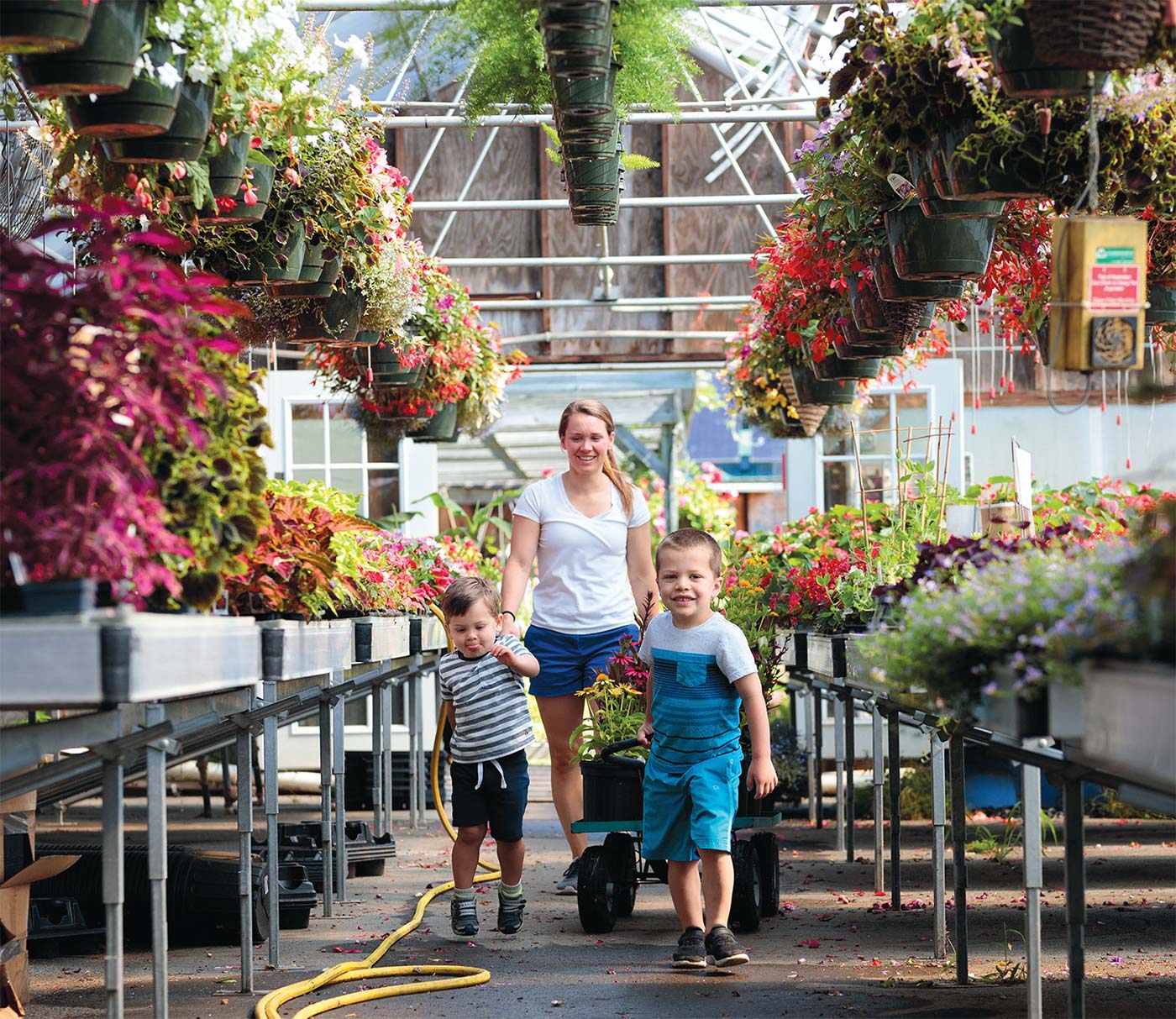
A local family enjoying the shade-loving annuals greenhouse
GET INVOLVED
From May to December, guests can visit and support Cedar Circle through the farmstand and Hello Café, the true hub of the farm, where they can see, experience, and purchase what is grown and produced on-site—from certified organic vegetables to annual and perennial plants and flowers, prepared foods, canned goods, and so much more.
Part of Cedar Circle’s mission is to build a more localized food economy, so you’ll also find meats, cheeses, dairy, and other specialty products from local producers.
Pick-Your-Own
One of the most popular activities is pick-your-own, a family-friendly activity that is enjoyed by many, including avid food preservationists! At different times of the season, you can pick your own strawberries, blueberries, flowers, apples, or pumpkins. Make sure to call ahead or check the website for details.
Vegetables, Fruits & Greens
The majority of Cedar Circle’s produce is sold through its farm stand and at local farmers’ markets in Norwich, Vermont and Lebanon, New Hampshire. Availability varies throughout the season depending on planting schedules, the number of days it takes for the plants to reach maturity, and weather—but you will surely find greens, roots, herbs, and/or fruits no matter when you visit.
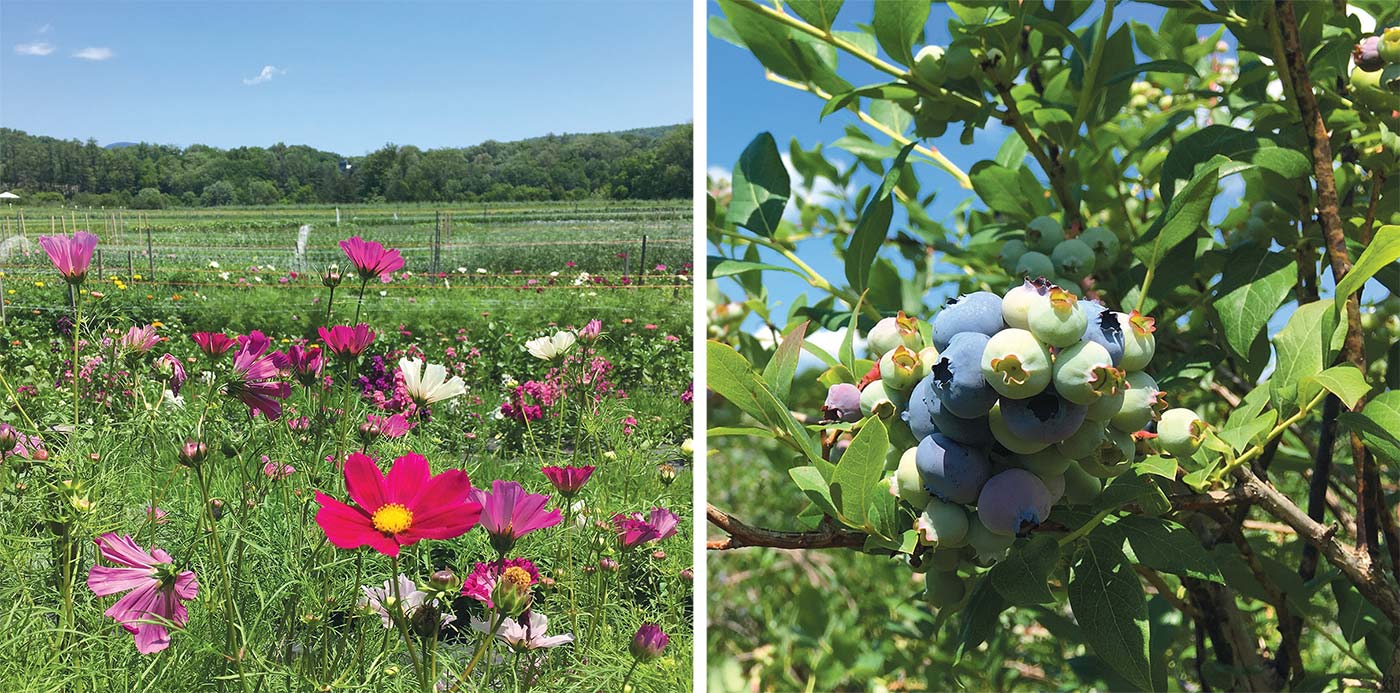
(left) Pick-Your-Own flowers from July to September; (right) Pick-Your-Own blueberries from July to August
Farm Kitchen
Cedar Circle’s on-site farm kitchen helps capture more of the harvest, providing delicious food for the community and extending the season of local eating. Both fresh and gleaned produce are transformed into delicious baked goods, sandwiches, salads, entrées, frozen prepared vegetables, sauerkrauts, pickles, and spreads. You can enjoy their freshly baked breads and other mouth-watering goodies every day of the week, and on the weekends you’ll find pastries such as croissants and Danish pastries in Hello Café.
Annuals & Perennials
During the course of the season, from May to October, you’ll find a wide variety of plants and flowers at the farm—sun- and shade-loving annuals, hanging baskets, pre-potted containers of mixed annuals, houseplants, succulents, and “perennials with a purpose” (native, good for pollinators, edible, or medicinal).


